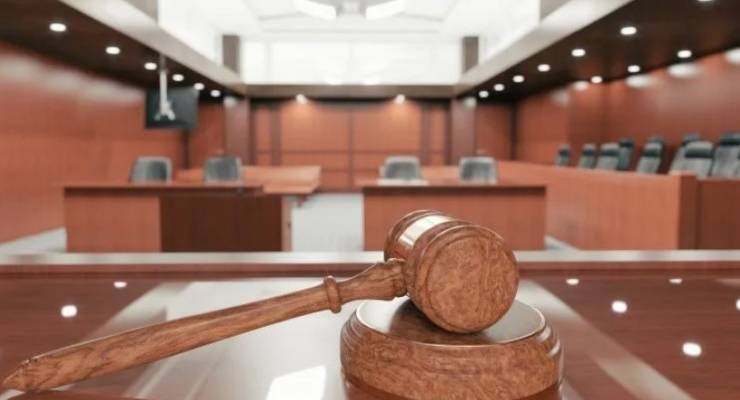
Jury deliberations into the trial of Bruce Lehrmann have entered their third day as a group of 12 jurors consider whether he should be found guilty of the alleged 2019 rape of Brittany Higgins in Parliament House. The jurors have been told by ACT Supreme Court Chief Justice Lucy McCallum not to let sympathy, prejudice or public opinion impact their judgment.
It’s not an easy case, with the whole of Australia watching and waiting — and it makes sense they’d take their time in reaching a decision. They must reach a unanimous verdict.
But the phrase “it’s not looking good” gets tossed around every time a jury takes longer than a day to consider an outcome, with many believing the more time a jury takes, the more likely they are to acquit the accused.
Research from the US has found there may be some truth to this — the criminal trial juries observed that juries that convicted came back with a verdict faster than the juries that acquitted. The longer a jury deliberated, the more likely it was that any subsequent appeal against their verdict would fail. But, the researchers noted, drawing solid conclusions was difficult due to the varying complexity of cases.
Take the case of Gable Tostee, who faced charges of murder and manslaughter after his Tinder date Warriena Wright fell to her death while attempting to climb from his 14th-floor balcony. The jury deliberated for four days, at one point telling Justice John Byrne they were unable to reach a unanimous verdict before being told to try again. Tostee was eventually found not guilty on both counts.
Compare that with the 2018 trial of James Gargasoulas, who was convicted of six counts of murder and 27 counts of recklessly endangering life after driving his car at pedestrians on Melbourne’s Bourke Street. The jury in his case deliberated for just 57 minutes.
But does this constitute a pattern? In short no, University of South Australia Emeritus Professor of law and criminal justice Rick Sarre tells Crikey.
“The gut feeling that most barristers would have is that, typically, the longer a jury goes, the more likelihood towards acquittal,” he said.
“But it’s simply unpredictable — it could be one waiverer either toward guilt or innocence.”
Recent trials in the US have shown it’s less clear-cut. A 2020 jury convicted film producer Harvey Weinstein of two of five criminal charges after deliberating for five days, while juries also took five days to find Jeffrey Epstein associate Ghislaine Maxwell guilty of six complex charges relating to trafficking and sexually abusing minors. It took around seven days for a jury to find disgraced Theranos founder Elizabeth Holmes guilty of around half of the 11 charges she faced relating to financial crimes.
In Australia, not all states and territories operate the same. Unlike in the ACT, where the Lehrmann case is being tried, South Australia requires a majority verdict of 10 out of 12 jurors, instead of a unanimous one.
“It means if you get someone that’s adamant that he or she is right and will hold out against the others … it gets rid of going back saying there’s a hung jury and having to start all over again,” Sarre said.








Crikey encourages robust conversations on our website. However, we’re a small team, so sometimes we have to reluctantly turn comments off due to legal risk. Thanks for your understanding and in the meantime, have a read of our moderation guidelines.